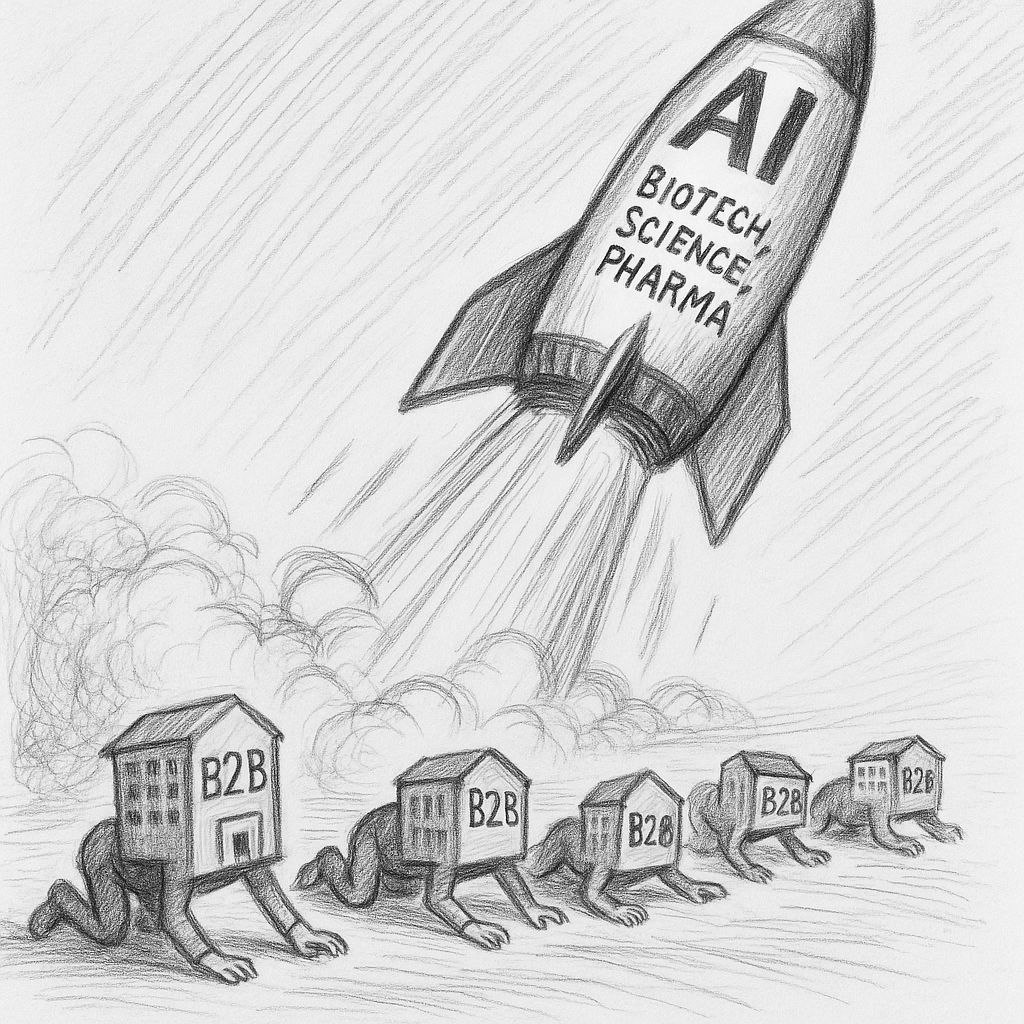
Artificial intelligence is accelerating biomedical discovery at a pace that seemed like science fiction just a few years ago. Where creating a new antibody, sequencing a protein, or detecting a tumor once took years, millions of dollars, and dozens of specialists, it now requires mere hours or weeks, driven by automation and radically different budgets.
Consider these breakthroughs from June alone:
Chai-2: An AI model capable of designing antibodies from scratch (de novo). It achieves a hit rate of up to 20%, compared to the traditional <0.1%. The entire process, from generation to a lab-confirmed result, takes two weeks. In one case, a task that previously demanded $5 million and months of work was solved in a few hours, plus lab verification.
Portal Biotech: This company secured $35 million in funding for a platform enabling the world’s first true single-molecule protein sequencing. This means scientists can now see an entire protein molecule—with all its mutations and modifications—without the destructive fragmentation required by mass spectrometry. It’s a leap forward for proteomics that will fuel next-generation AI models based on protein dynamics.
BrainMets AI: Developed by Robovision and the Netherlands Cancer Institute, this system identifies brain metastases smaller than a grain of rice with 97.4% accuracy (and 93.3% for lesions under 3mm). With zero missed cases, it’s setting a new standard for neuroradiology and CNS diagnostics.
The Contrast in B2B
In the world of B2B, however, the picture is different.
During a recent talk, I noticed some interesting feedback: nearly everyone in the audience was already using AI in their daily lives. But only a handful were truly integrating it into their core business processes.
Why this gap?
- A Shortage of Professionals. Many companies have been burned by “AI freelancers” and unqualified teams. The resulting reputational and financial losses have cooled their initial enthusiasm.
- Complexity and Cost. A full-scale integration, especially one involving custom model training, remains a difficult and expensive endeavor. It demands clean data, robust infrastructure, and deep expertise.
For now, the only players making significant moves are those placing a conscious, strategic bet on AI or aiming to secure a decisive market advantage for the next 10–15 years.
The rest are watching from the sidelines. Meanwhile, biomedicine, science, and pharma are moving at light speed.
AI is no longer just a tool. It’s a new class of business partner.